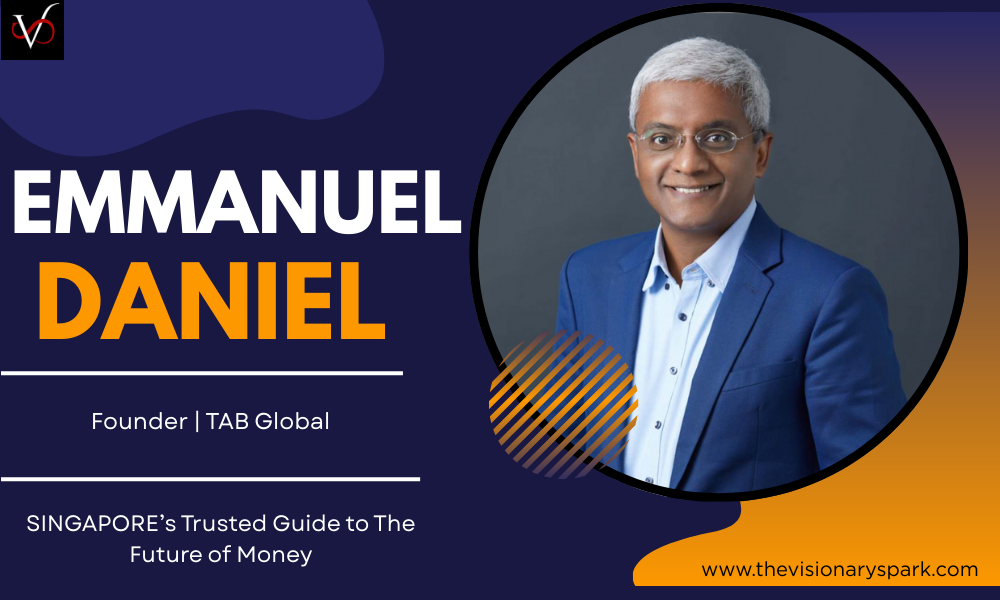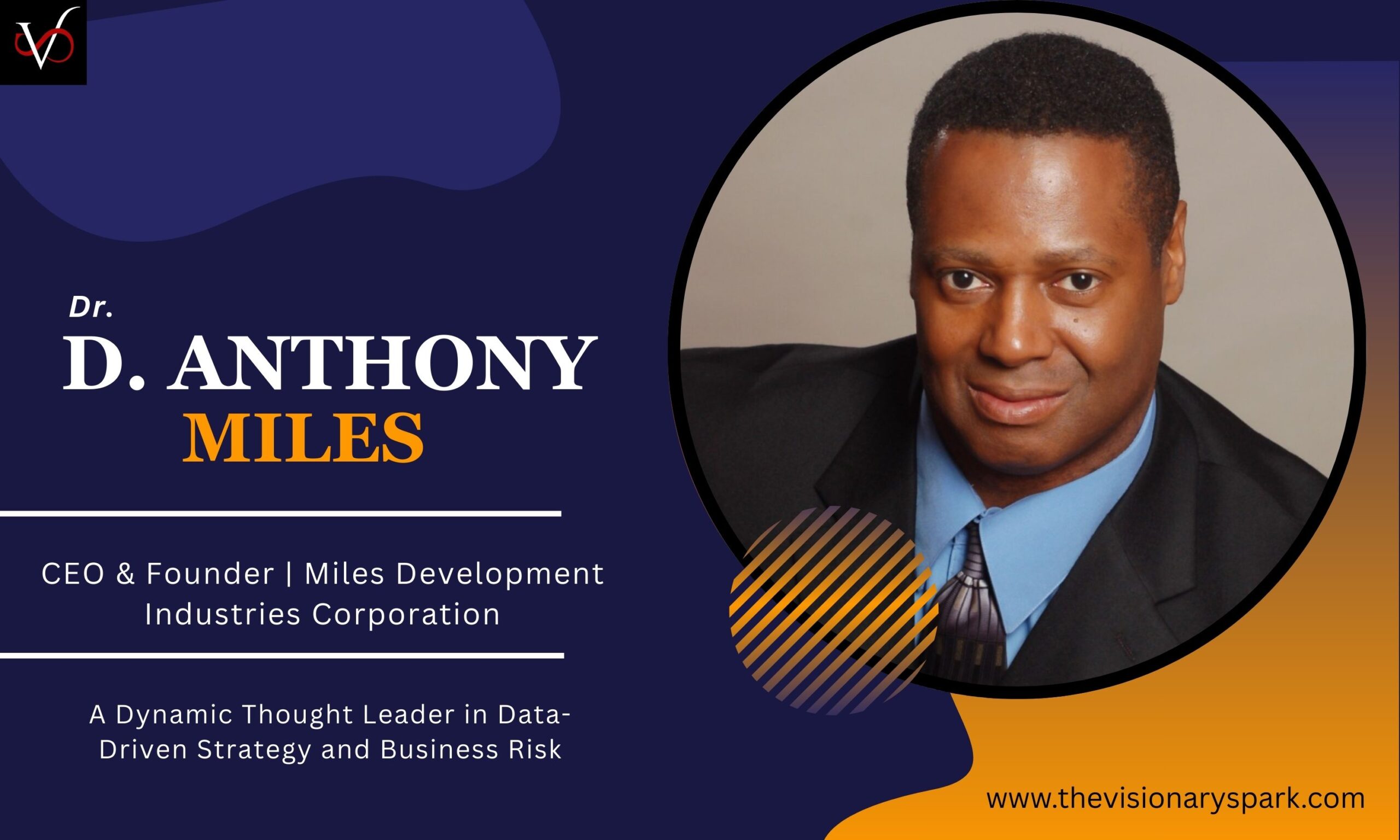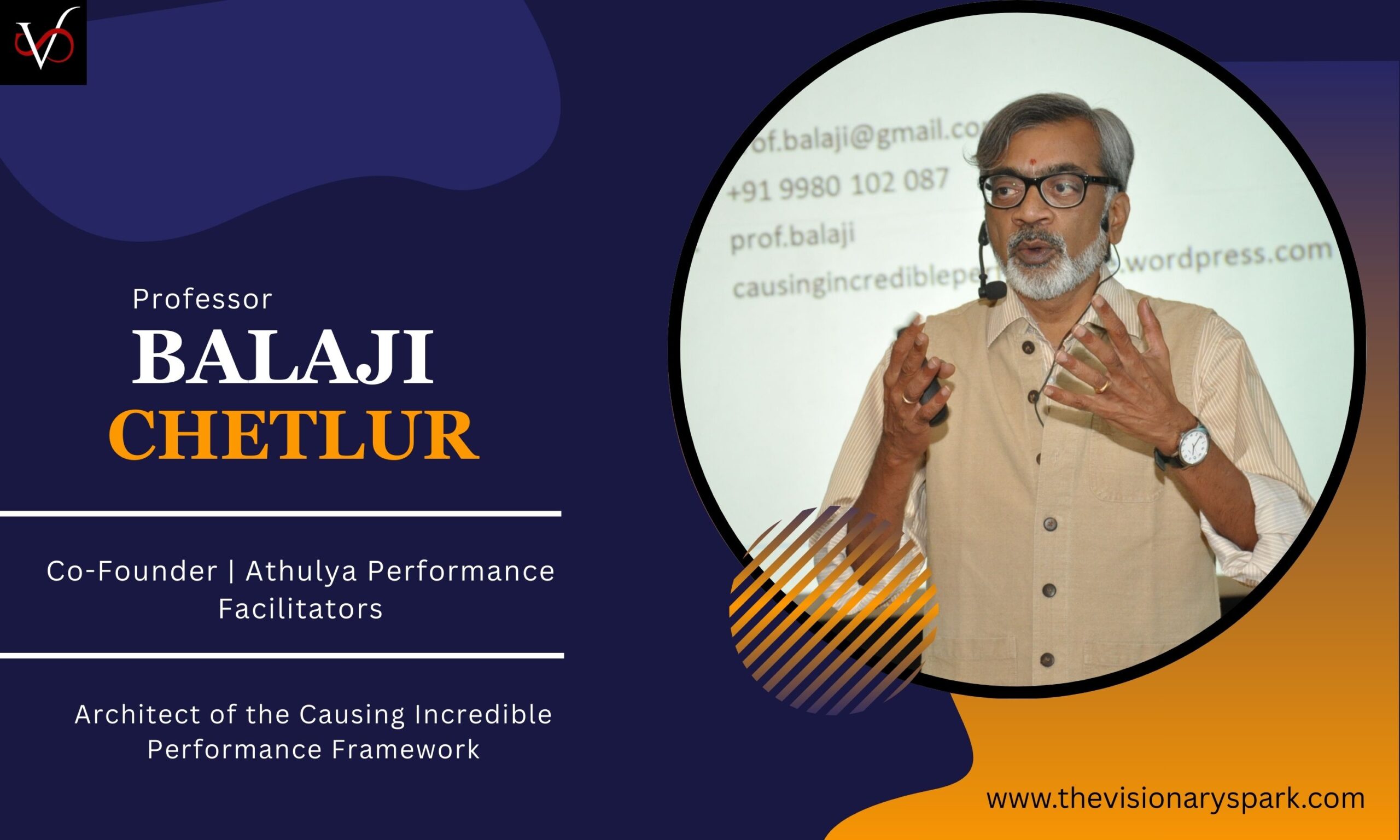
In the evolving story of global finance, there are individuals who stand apart not merely because of their accomplishments but because of the depth of their vision. Emmanuel Daniel is one such figure—a thinker, builder, and connector who has carved a distinctive place at the intersection of finance, leadership, and innovation. As the founder of TAB Global, his work is not confined to one region or a single industry; it spans continents, cultures, and conversations, carrying with it a profound understanding of how finance is both a technical discipline and a human endeavor. In 2025, when the financial world continues to be tested by digital disruption, shifting regulations, and new economic orders, his voice resonates with authority, guiding not just institutions but the leaders who run them.
What sets Emmanuel apart is not simply his knowledge of banking or capital markets but his ability to observe patterns and translate them into ideas that shape entire industries. He recognized early that finance is as much about people and behavior as it is about technology and capital. This belief gave rise to TAB Global, a platform that today stands as a trusted bridge between financial institutions, regulators, innovators, and entrepreneurs. Through research, events, and thought leadership, TAB Global has become a space where future-oriented conversations take root and grow into strategies that impact millions. From Singapore, where it is headquartered, the platform has radiated influence across Asia, the Middle East, Europe, and the Americas, marking Emmanuel as one of the rare thought leaders who has built a truly global network while remaining deeply attuned to local dynamics.
His journey is not one of shortcuts or opportunistic ventures. Emmanuel Daniel has consistently shown a capacity for long-term thinking in an era often dominated by short-term results. While many chased immediate financial gains, he built a foundation that would endure. TAB Global was never just another publishing house or event organizer; it was conceived as a community—a living ecosystem where stakeholders could exchange ideas freely and challenge assumptions. Under his leadership, it has managed to evolve in step with technological transformations, from the rise of digital banking to the disruptive impact of fintech, while maintaining a clear focus on substance over hype.
By 2025, Emmanuel’s perspective is more relevant than ever. The financial services industry is undergoing profound change as artificial intelligence reshapes operations, cryptocurrencies test the edges of traditional monetary systems, and sustainability becomes not just a preference but a mandate. At each juncture, his insights cut through noise and trend-driven commentary, reminding leaders of the deeper forces at work. He speaks not only about how institutions must adapt to change but also about the human qualities—vision, integrity, courage—that leaders must embody to steer their organizations. His approach blends rigorous analysis with philosophical reflection, making his voice both pragmatic and inspiring.
In many ways, his thought leadership reflects the duality of finance itself. On one hand, finance is about numbers, transactions, systems, and compliance. On the other, it is about trust, relationships, and the collective future we are building. Emmanuel navigates both with remarkable fluency. His writings and talks consistently challenge the assumption that financial innovation alone will solve global problems. Instead, he argues that innovation must be coupled with accountability and empathy, otherwise it risks widening the very gaps it promises to close. This view has won him respect among policymakers, entrepreneurs, and academics alike.
Singapore, his base of operations, provides a fitting backdrop for this vision. As a global hub for trade, technology, and financial services, it represents the kind of dynamic, interconnected environment that Emmanuel has long championed. He has used this vantage point not only to influence the Asian financial landscape but to connect East and West, helping leaders from different cultural contexts learn from one another. His convening power has been one of his greatest assets. Whether through high-level conferences, in-depth reports, or one-on-one conversations with CEOs, he has consistently created opportunities for dialogue that leads to action.
Yet Emmanuel’s story is not just about institutional success. It is also about personal resilience and intellectual curiosity. He has built his career by asking questions that others overlook, often probing the assumptions that underpin entire industries. This contrarian instinct has enabled him to anticipate changes before they become obvious. Long before the mainstream recognized the disruptive potential of fintech, he was already convening conversations around it. Years before sustainability became a headline topic, he was exploring its implications for financial services. Today, as artificial intelligence begins to define the future of banking and investment, he continues to push the boundaries of what leaders should consider.
What makes his insights particularly valuable is the way he connects them to leadership itself. Emmanuel Daniel does not view leadership as a static position but as a living responsibility. He challenges leaders to look beyond their organizational roles and consider the societal impact of their decisions. In his view, the best leaders in finance are not just guardians of balance sheets but architects of trust. They are the ones who recognize that innovation without responsibility is unsustainable, and growth without inclusion is incomplete.
In 2025, these principles resonate strongly. The world faces an uneasy balance between rapid technological advancement and deepening inequality. Emmanuel’s call for leaders to embrace empathy and accountability in parallel with innovation feels both urgent and practical. He reminds us that the future of finance is not simply about digital platforms or decentralized currencies but about the values that guide their adoption. His work consistently emphasizes that the human element remains irreplaceable, even as automation and algorithms reshape the industry.
The reach of his influence is evident in the way TAB Global continues to expand. Its flagship initiatives—industry rankings, thought leadership publications, and strategic roundtables—have become benchmarks of excellence. Institutions look to its assessments not only for validation but also for direction. Policymakers engage with its research as they navigate complex reforms. Entrepreneurs see its events as a gateway to global recognition. Behind all of this is Emmanuel’s steady hand, ensuring that the platform remains intellectually rigorous, globally relevant, and forward-looking.
Equally important is his contribution as an author and thinker. His writings, shaped by decades of observation and experience, carry both analytical sharpness and literary depth. They reflect a mind that is not content with surface-level commentary but seeks to uncover the structural and cultural shifts that drive finance. His books and essays have been widely cited, and they continue to influence both current practitioners and the next generation of leaders. Through these works, he has secured his place not only as a commentator but as a historian of sorts—one who documents the shifts of the financial world while interpreting their meaning.
As a figure of influence, Emmanuel Daniel embodies both stability and change. He is stable in his commitment to intellectual honesty, to building bridges across cultures, and to holding leaders accountable. Yet he is also an agent of change, constantly encouraging experimentation, innovation, and transformation. This balance has earned him admiration across different sectors of the financial ecosystem.
Looking ahead, his role seems destined to grow even more vital. The financial world in 2025 stands at a crossroads. The decisions made by leaders today will determine whether finance becomes a driver of inclusive progress or a tool of exclusion. Emmanuel Daniel is among the rare few who articulate this choice clearly and provide frameworks for navigating it. His voice serves as both a mirror and a compass—reflecting the realities of our time while pointing to possibilities for a better future.
Ultimately, Emmanuel’s story is one of purpose. He demonstrates that leadership in finance is not about control but about service—service to institutions, to societies, and to future generations. Through TAB Global, through his writings, and through his presence as a convenor of leaders, he has shown that influence is not measured by titles or profits but by the impact one leaves on conversations and on lives. His example invites others to rethink what it means to lead in a world of complexity and constant change.
As Visionary Spark features him in this edition, it is clear that his journey offers not just inspiration but direction. In Emmanuel Daniel, we see the embodiment of a leader who understands that finance is not an end in itself but a means to create value, to foster trust, and to build futures. In celebrating his work, we are reminded that the most important questions facing finance in 2025 are not about technology or markets alone but about vision, values, and the human capacity to shape them.






Leave a Reply